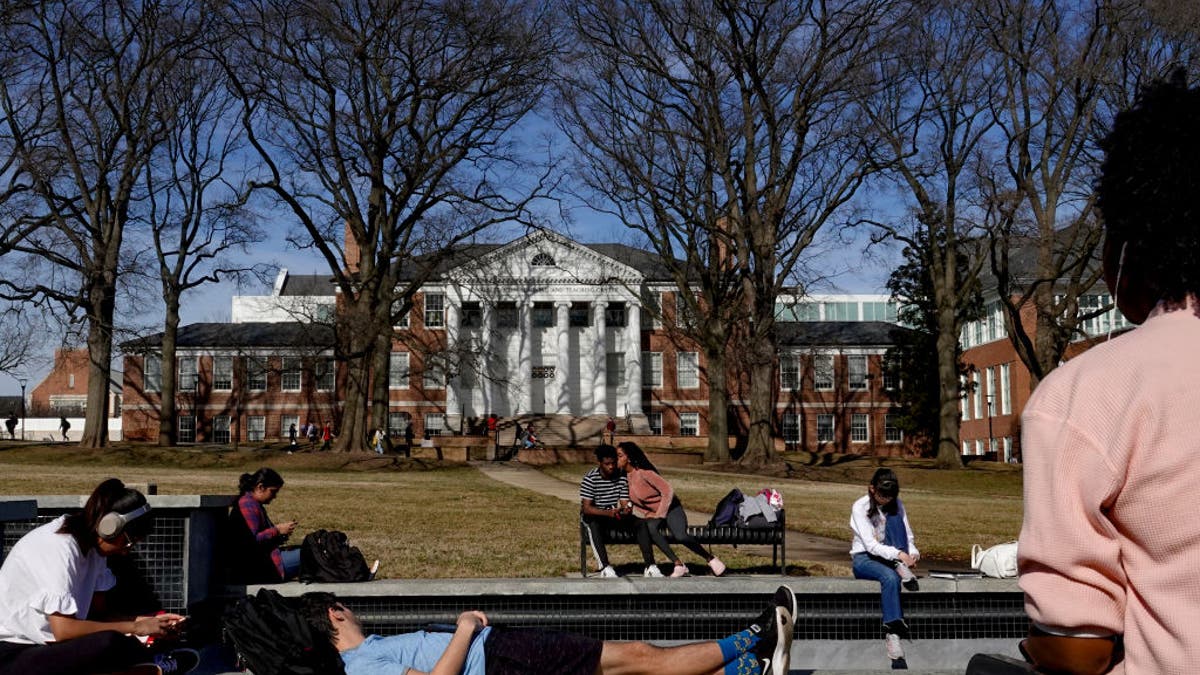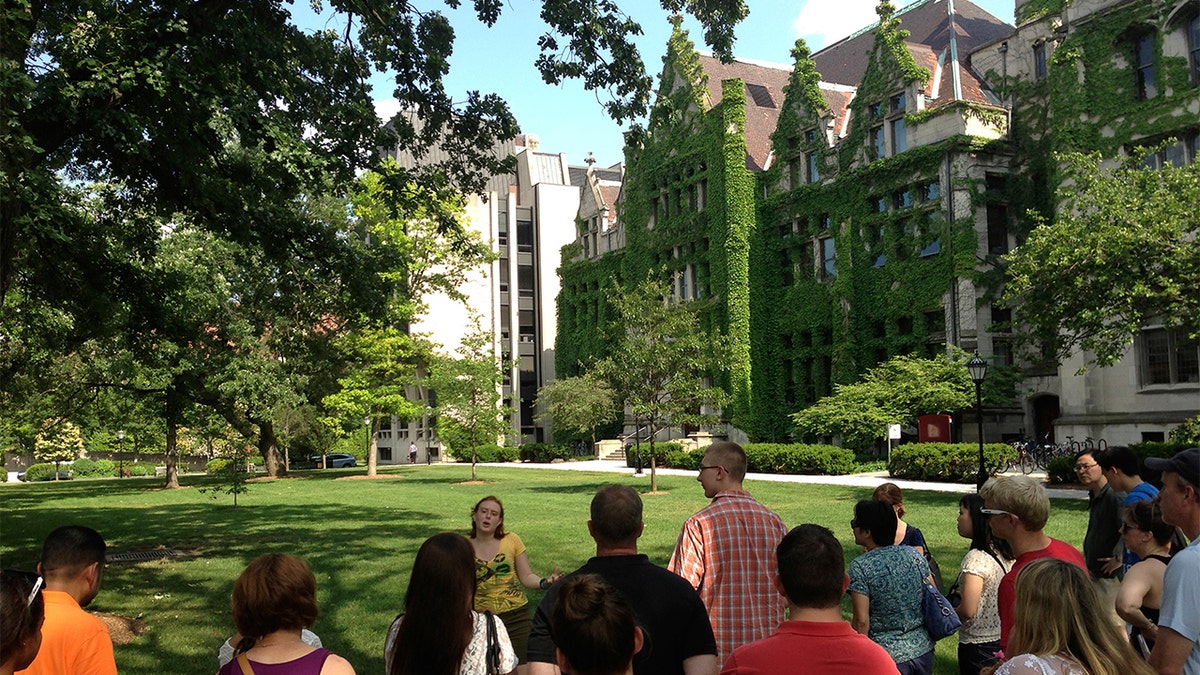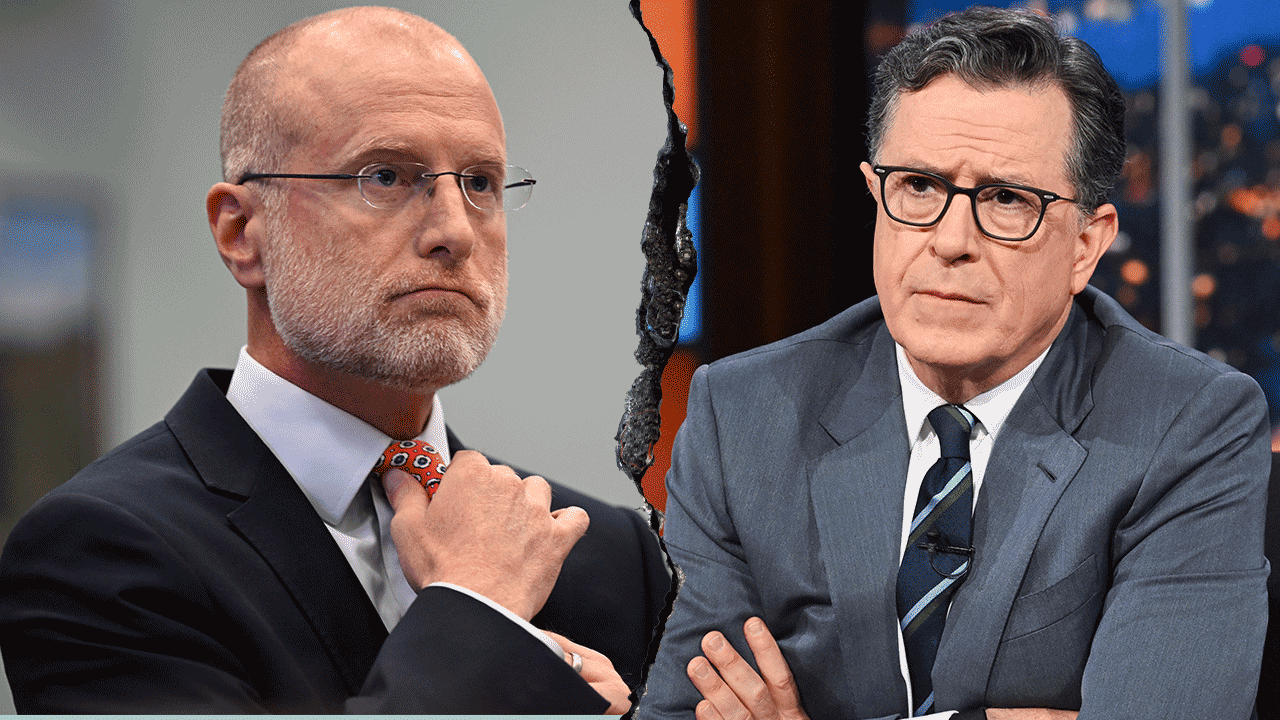Niall Ferguson reacts to the 'woke' takeover of US colleges and universities
Hoover Institution senior legal fellow Niall Ferguson and technology entrepreneur Joe Lonsdale weigh in on the ideological battle over higher eduction on 'The Next Revolution.'
Free speech rights on college campuses are well-established, said speakers on an education panel at the Heritage Foundation Monday, advising students on what to do if they feel their rights are being infringed.
"The land of the free is now the home of the easily offended," said Sarah Parshall Perry, a senior legal fellow at The Heritage Foundation who moderated the panel. "Our First Amendment freedoms should unify the nation, but unfortunately, there is some division."
Perry highlighted several examples of speakers on college campuses being met with opposition that ultimately prevented them from speaking, including Art Laffer who was shouted down before being able to speak at Birmingham University.
The economist was invited to speak in 2019 about economics by the College Republicans, but as soon as Laffer approached the podium, protesters with a bullhorn jumped on desks shouting, with the intent to shut down Laffer’s speech. Laffer and other students were immediately ushered out of the room, and according to university officials, two of the protesters were arrested.
THE LEFT DOES NOT THINK THE FIRST AMENDMENT APPLIES TO THE RIGHT: REP. JIM JORDAN

Students relax in unseasonably warm weather -- 70º -- at The University of Maryland in College Park, MD on February 5, 2018. (Photo by Bonnie Jo Mount/The Washington Post via Getty Images)
For students with questions about how free speech applies on college campuses, Cece O’Leary, Director of the 1A Project at the Southeastern Legal Foundation noted "where you are standing on campus actually does matter," and that your free speech rights differ depending on where you are on campus. Speech may be restricted in areas like classrooms and dorms than in public areas like sidewalks, she said.
Despite restrictions in some areas, she said a student’s views "can never be discriminated against."
"No matter where you’re standing on campus, your college cannot silence you, they cannot prevent you from sharing your beliefs with other people," O'Leary said.
ILYA SHAPIRO: UNIVERSITIES EMBRADE ACADEMIA'S WOKE INSANITY TO CRUSH FREE SPEECH

Family walks with a college student out the main gates of the University of Indiana campus down into the town during Fall Break weekend. Eight students are suing the school over its COVID-19 vaccine requirement. (iStock)
For students who may be concerned about viewpoint discrimination by their professors, O’Leary recommended they start by reading their syllabus.
"I encourage you to actually go look at the books your professor has assigned," she said. "You will very easily get a feel for if the professor is teaching a balanced course, or if the professor is going to skew one way, and is going to make his or her views known."
RANDI WEINGARTEN BLASTS ‘RIGHT-WING EXTREMISTS’ FOR FIGUTING ‘CULTURE WARS’ IN CONFERENCE SPEECH
She also recommended students take records of incidents in class that raise red flags about whether the professor is biased.
"Every time your professor says something in class that makes you think ‘oh, this professor is going to be hostile to what I have to say,’ write it down," she said. "Write down exactly what the professor said so that you start to build a record."

Prospective college students take a tour of the University of Chicago campus in Chicago, on June 24, 2013. (AP Photo/Jon Elswick)
For students attending private colleges and universities, Victor Bernson, general counsel at the Young America’s Foundation, noted it is more difficult to file First Amendment lawsuits, but that students should look at state laws and their school policies, which often have additional free speech protections.
"It’s not a situation where there are no protections at all," he said of private schools.
CLICK HERE FOR THE FOX NEWS APP
Cherise Trump, Executive Director at Speech First, added that students at private schools read the student handbook, which she said creates a contractual relationship between the university and students.
The panelists emphasized that First Amendment protections are well-established on university campuses, but many college students may be unaware of their rights.









































